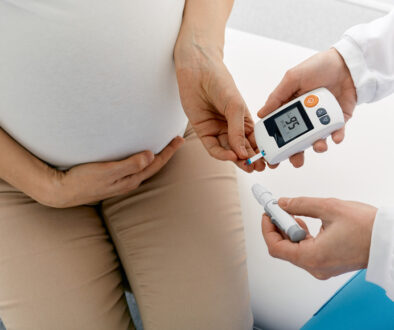Vitamin D: What You Should Know
It has long been known that vitamin D and calcium are essential elements needed to maintain bone structure and integrity. As better health and nutrition have become more important focuses in our lives, supplements have become more popular, especially vitamins such as vitamin D. Vitamin D can be measured by blood testing in the form of 25 Hydroxy VitaminD (25-OH VitD). Supplementation with Vitamin D has many theoretical advantages, but the true questions are: do these potential advantages translate to improved health; if so, is there an optimal amount to take?
Vitamin D and bones:
Vitamin D is essential for adequate absorption of calcium and bone structural maintenance. Studies show that a blood level less than 20 ng/ml of OH VitD has been associated with greater compromise in bone integrity (Osteopenia and Osteoporosis) than if the level is above 20.
Vitamin D and the heart:
There are several studies which show a definite relationship between low levels of vitamin D and heart disease. One such important study called the Framingham Offspring Study demonstrated a greater risk of heart disease in patients with OH VitD less than 10 ng/ml vs. 15 ng/ml vs. 20 ng/ml. Other studies showed a greater propensity of lower levels of vitamin D in patients with heart disease when compared to those patients without any heart disease. At this time there are no large prospective studies that show supplementation with vitamin D reducing heart disease. Although large prospective studies are not available to date, adequate levels of vitamin D certainly appear to be beneficial to the heart.
Vitamin D and women of advanced age:
There is substantial evidence showing that not only are the number of fractures reduced with adequate vitamin D supplementation (hip fracture being a life threatening complication in elderly women), but adequately treated patients also tend to have better balance and fewer falls . It is felt that vitamin D may reduce the risk for falling because of improvement in strength and muscle function, thus improving balance.
Vitamin D and breast cancer:
The evidence is not yet overwhelming but there is a large Canadian study which showed a reduction in breast cancer when patients took 4,000 units/day of vitamin D (Anderson Journal of Nutrition, 2010). The Nurses’ Health Study (Journal of the National Cancer Institute, 2002) showed reductions in breast cancer in premenopausal women taking vitamin D supplementation in doses between 500-1,000 units/day.
The one major concern is whether vitamin D may have negative effects when taken in very large supplemental doses. There is some concern that OH VitD levels in the range of 50-100 ng/ml may be associated with pancreatic cancer. Because of this concern, the National Cancer Society does not endorse vitamin D as being cancer protective.
It is clear that taking proper vitamin D with calcium supplementation reduces both the incidence of falls and risk of life threatening fractures in older women. It also appears that vitamin D may have many benefits. Considering all available information, prudent supplementation that keeps blood levels of OH VitD between 30-50 ng/ml is a good idea. The Institute of Medicine recommends that doses of vitamin D should not exceed 4,000 units/day, and that doses between 800-1000/day are satisfactory to maintain optimum blood levels in the range of 30-50 ng/ml.




